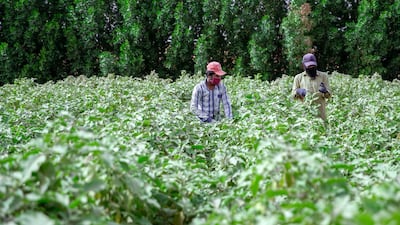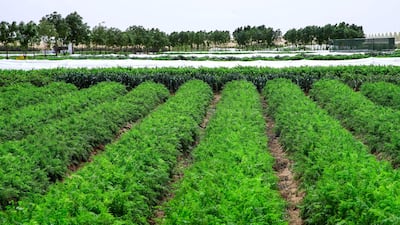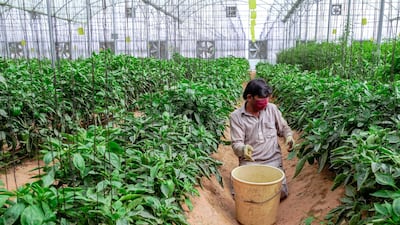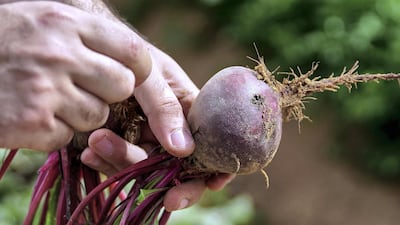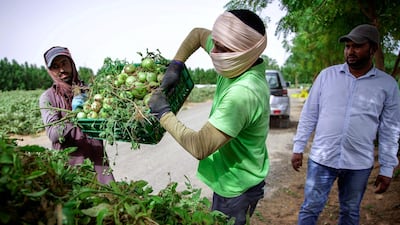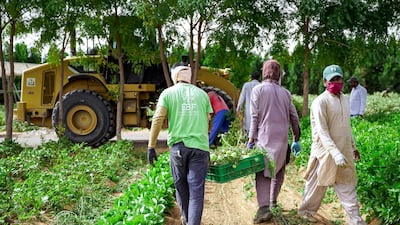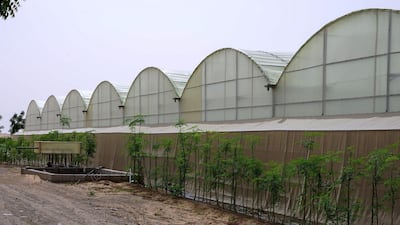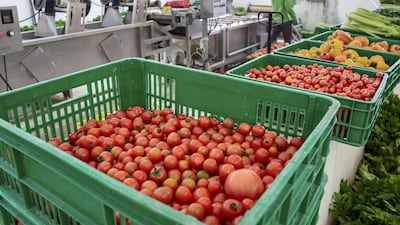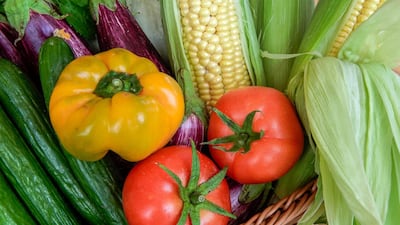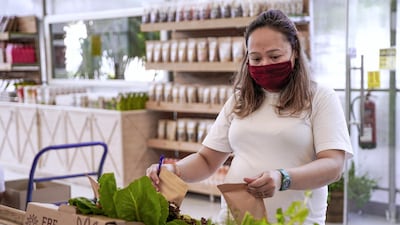A return to nature and traditional forms of farming will help to increase crop yields in regions starved of water and fertile soil, agricultural experts said.
An online conference, hosted by the European Union and United Nations World Food Programme, discussed challenges facing the agricultural industry in the fallout from the global pandemic.
The WFP estimates that about 270 million people now face food insecurity, double the number before the rise of Covid-19 as a result of disrupted supply chains and job losses.
As part of the UN Food Systems Summit, panellists revealed how those issues were being addressed through innovation.
Hussain Al Mahmoudi, chief executive of American University of Sharjah Enterprises and Sharjah Research, Technology and Innovation Park, said the UAE was focusing on local solutions to local issues.
“We need to design practical solutions to create the right models to address local needs and local opportunities,” he said.
“In this part of the world, agri-tech is an attractive word to throw around, but we need to educate and work with young people to make it more effective.
“There is not one answer or solution; the UAE has its own situation.
“There are some great technologies out there, but there is a disconnect and this is one of the challenges that we have.”

Natural solutions
One project by students at SRTI uses artificial intelligence to monitor fish movements and measure when and how much they eat, so farming can be made more efficient.
The park is also a centre for vertical farms, hydroponic solutions (soil-free farming) and water recycling, which uses fish faeces as a natural crop fertiliser.
Prof Andrew Lowe, director of food innovation and chairman of plant conservation biology at the University of Adelaide, said natural solutions were helping to solve farming problems.
He said vineyards were using technology to maximise limited water resources in the wine-producing Riverland region of South Australia.
“Computer vision can now recognise when crops will flower and fruit, which enables farmers to be more precise with their harvest,” he said.
“We are seeing regenerative farming practices and cover crops grown between rows of vines to build up carbon in the soil and encourage water retention.
“Simple things like planting hedgerows reserved for bees can also service crops reliant on pollinators.”
Prof Lowe said the technique can increase productivity by 25 per cent to 50 per cent, and is a low-tech solution that can work alongside agri-tech.
Over-consumption of meat
More sustainable livestock farming is a potential solution to some issues around global hunger, he said.
"We have seen an awakening [to] some of the problems with livestock systems," he said.
“Land use and water sources can be taken over by livestock, but there is rarely an alternative in parts of the world where intensive agriculture would not work.
“But in much of the developed world we are seeing a mass over-consumption of meat.
“About 100 kilograms of meat a year is consumed per person in Australia – four times the recommended annual limit by the WHO.
"Alternative diets such as vegan, flexitarian or vegetarian will help promote better health and changes to meat production."
Efficient, inclusive and resilient food systems underpin the WFP’s Zero Hunger agenda.

The UAE has become one of the leading WFP donors, since 2018 providing $650 million to support its operations.
But the rapid rise in hunger taking hold around the world suggests existing food systems require major transformation.
Katja Seidenschnur, Nestle's sustainability director for Europe, Middle East and North Africa, said change is already under way.
“If we go back to natural soils and traditional agriculture, a lot of the problems will be solved by themselves,” she said.
“Nature does not need technology or data, and we want to work with farmers to protect biodiversity.
“The consumer can help massively by switching to more plant-based diets, and we want to support that to help change their behaviour.
“You can change habits quite easily when you realise there are more plant-based alternative foods out there now.”
